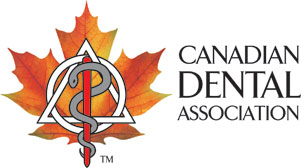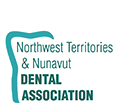April 7, 2022 - Ottawa, ON: On April 7, 2022, the Honourable Chrystia Freeland, Deputy Prime Minister and Minister of Finance, released in the House of Commons Budget 2022: A Plan to Grow Our Economy and Make Life More Affordable. Budget 2022 proposes funding of $5.3 billion over five years to Health Canada to provide dental care for low-income Canadians. Allocating additional funding to enhance access to dental care for underserved Canadians echoes the long-standing recommendations of the Canadian Dental Association (CDA).
“We applaud the federal government’s commitment to improve the oral health of Canadians and increase access to dental care for those who need it most,” says Dr. Richard Holden, President of the Canadian Dental Association. “We continue to believe that stabilizing and enhancing existing provincial and territorial dental programs is the fastest and most efficient approach to do so. This will help avoid disrupting access to dental care for the more than two-thirds of Canadians who already have access, largely through employer-provided health benefits.”
Provincial and territorial oral health programs have been significantly underfunded and are almost exclusively financed by provincial and territorial governments. Along with provincial and territorial dental associations, CDA has long advocated for targeted investments to better support, maintain and expand existing public oral health programs. This would enable these programs to better meet the needs of Canada’s more vulnerable populations, including seniors, children, low-income families, Indigenous Peoples, racialized individuals and persons living with disabilities.
“We look forward to continue collaborating with Minister Duclos, along with his team and colleagues, to build a stronger health care system – one that includes improved access to dental health care,” adds Dr. Holden. “We’re pleased to see the federal government move forward with its commitment to improve the oral and overall health of Canadians, and to fix gaps in access to dental care that some Canadians face.”
As part of its scope of work, CDA uses its national voice to raise issues and concerns facing the dental profession. CDA works diligently to ensure that oral health remains a recognizable and significant public health issue, and informs key decision-makers about matters that directly impact dentistry and the oral health of the Canadian population. Learn more about CDA’s advocacy efforts.
About the Canadian Dental Association
Founded in 1902, the Canadian Dental Association (CDA) is an association that has no regulatory role. It is a federally incorporated not-for-profit organization whose corporate members are Canada’s provincial and territorial dental associations (PTDAs). CDA represents over 21,000 practising dentists nationwide and is a trusted brand and source of information for and about the dental profession on national and international issues.
Quick Facts:
- Dentists and dental offices: There are approximately 25,500 licensed dentists in Canada, operating out of roughly 16,000 dental offices in Canada. That works out to about 65 dentists for every 100,000 Canadians. This ratio has approximately doubled since the 1960s.
- Dental benefits: More than two-thirds (67%) of Canadians report having dental benefits that cover all or part of their dental treatments; roughly 50% of Canadians have employer-provided dental benefits.
- Visiting the dentist: Canadians with health benefits are more likely to visit a dentist (82%) than those without (60%). Regardless of coverage, Canadians with lower household income were less likely to go to a dentist than those in higher income households.
- Dental utilization: Approximately 75% of Canadians saw a dental professional on an annual basis in 2018, one of the highest rates globally among comparable countries.
- Dental expenditures in Canada: In 2019, a total of $16.4 billion was spent on dental care in Canada, with roughly 94% coming from the private sector. This works out to $437 per capita. Overall, this accounts for 6.4% of Canada’s overall health care expenses.
- Public dental care programs: Although public dental care programs exist across Canada, they vary from province to province, and are exclusively funded by provincial and territorial governments. The federal government’s support for dental care is limited to the Non-Insured Health Benefits (NIHB) program for eligible First Nations and Inuit people, as well as some support for hospital-based, surgical-dental services through the Canada Health Transfer.
Media Contact:
Zelda Burt
Head of Communications
Canadian Dental Association
613-523-7963
media@cda-adc.ca











